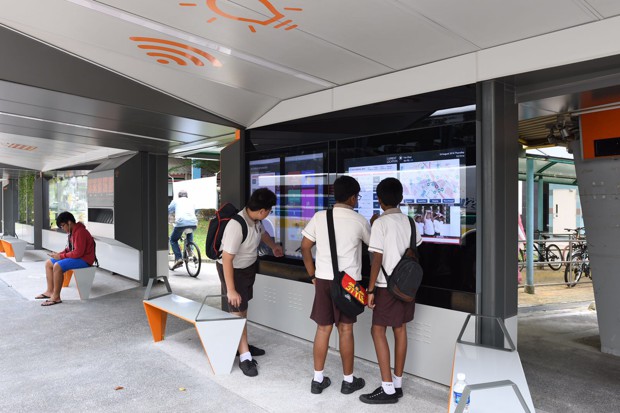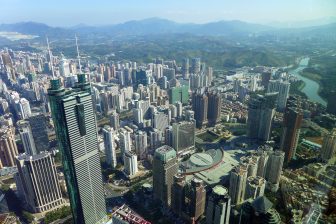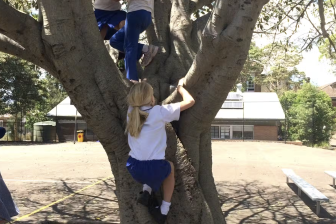
Bus stop puzzles – what makes a ‘learning landscape’
The potential for ‘learning landscapes’ – like children doing puzzles at a bus stop – to help reinvigorate public spaces is the subject of a new podcast.
When children as young as two and three years old are already facing significant gaps in their exposure to words, numbers, and spatial understanding, urban planners and child psychologists are developing ways to transform community spaces – from bus stops to supermarkets – into opportunities to augment children’s education through playful learning.
That’s the thinking of two researchers attached to the Brookings Institution, a non-profit public policy body based in Washington DC, which carries out research to develop new ideas for solving policy problems. It has a wide network of experts whose work covers all areas of local and national policy.
Public spaces
They include Kathy Hirsh-Pasek, senior fellow with the Brookings Center for Universal Education and co-director of the Infant & Child Lab at Temple University, and Jennifer Vey, senior fellow in the Metropolitan Policy Program at Brookings. As part of a podcast series for the institution where two experts discuss angle on policy issues, they have recorded a new episode which asks how non-traditional education can fit into the design of public spaces.
Asked to define the concept of ‘learning landscapes’ and how they can make a difference, Hirsh-Pasek says they offer opportunities at places where people normally wait, so there is an opportunity to use the time constructively.
“The question I asked is: when is a bench not a bench?” she says. “You are going to be sitting there anyway, so why not be playing with puzzles? Because if you are playing with puzzles there is wonderful scientific evidence to suggest that you are actually building pre-math skills.
Learning moments
“So the idea then grew from there to think about all the places that we go, whether it’s walking on sidewalks, sitting on a bus stop, waiting in a waiting room. Maybe just maybe, all of those could make the everyday moments extraordinary learning moments.”
This podcast and others in the series can be downloaded from the website.




